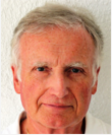From time to time, I read articles defying any semblance of rationality. I squirm to respond but the online journal allows no comments. OEN is broadminded and kind enough to allow me its outlet for my responses to absurdities.
I bear no malice toward the authors of absurdities. I honor their right to express their views publicly. Goodness knows, furthermore, I am sure many people have considered my published views to be absurd.
Absurdity Number 1. Why Doing Nothing Is Good For You by Olga Mecking and Ruth Terry. www.yesmagazine.org. June 18, 2023.
The coauthors promote the practice of "niksen," It means "to do nothing, a practice of just being, and can be understood as one way to get some rest. It is watching clouds pass by, not scrolling through Facebook. It is letting your mind wander, instead of reading emails or even making plans for the future. Purposelessness is an important aspect of niksen. Niksen, therefore, is doing nothing despite the health, productivity, and creativity benefits of rest and leisure--not because of them."
The authors go on to write that "Admittedly, this definition is somewhat nebulous and deceptively simple. It does not prescribe a specific activity or method, only purposelessness--and when does doing nothing become doing something, anyway? It also does not speak to the myriad interconnected personal, cultural, economic, and political factors that determine the extent to which people can "niks."
The authors note that "Article 24 of the United Nations' Universal Declaration of Human Rights proclaims: "Everyone has the right to rest and leisure, including reasonable limitation of working hours and periodic holidays with pay. Yet too many people see these rights--and, consequently, niksen--as privileges that some people just have, some work for and earn, and still others should not be allowed to enjoy. According to the Protestant work ethic prevalent in North America and parts of Europe, hard work and productivity are the basis of being a good, moral person."
The authors quote research presumably showing that "doing nothing could also improve productivity because it allows for a better clarity of mind--people made much better, more intuitive decisions when they didn't focus on identifying the positive or negative sides of each option but instead did something completely unrelated to the task at hand."
The authors' conclusion: "We need to stop treating rest, niksen, dolce far niente, woolgathering, whatever you want to call it, as something we have to earn and start thinking of it as something we deserve--something we're already worthy of. And we have to do it soon."
My Conclusion
Promoting doing nothing is not only an absurdity, but an irresponsibility and guaranteed recipe for Doomsday later on.





